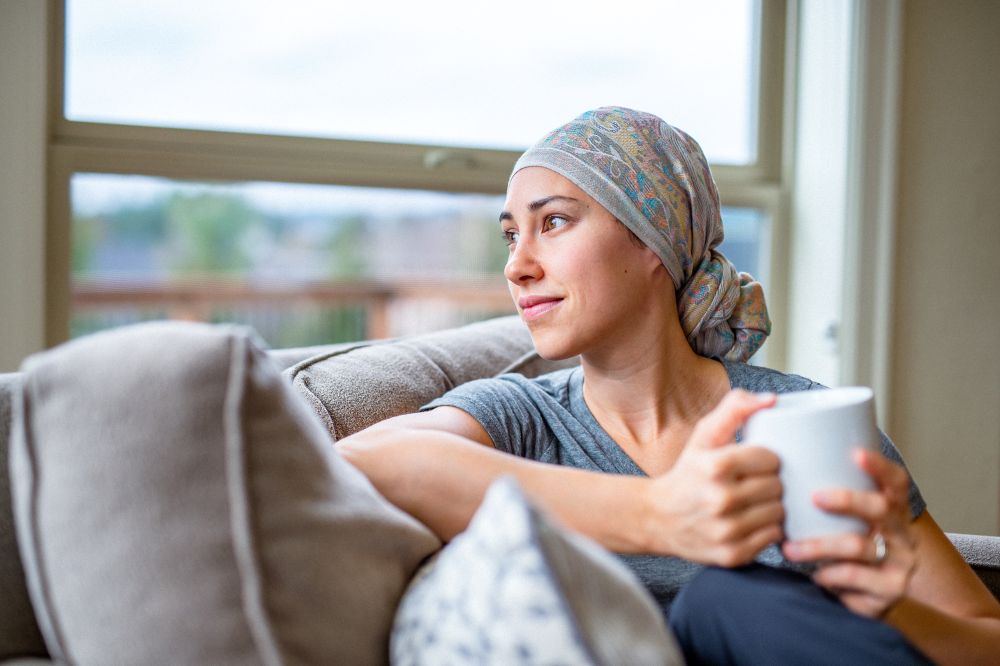
What is treatment-induced (premature) menopause?
Treatment-induced menopause is a common side effect in patients undergoing cancer treatment, particularly those under the age of 50. Chemotherapy can impact ovarian function, leading to an abrupt end to menstrual periods that can be temporary or permanent. This sudden onset of unnatural menopause is referred to as premature menopause.
Symptoms of premature menopause may include:
- Hot flashes
- Night sweats
- Vaginal dryness
- Mood changes
- Impacts on fertility
Unlike natural menopause, which has a more gradual onset of symptoms, chemotherapy-induced menopause symptoms occur abruptly and are usually more intense.
Are there certain types of cancer, treatments or preexisting conditions that put patients at greater risk?
Yes. Cancers of the breast and female reproductive organs, including ovarian, endometrial and cervical cancers, as well as hematologic malignancies such as lymphoma, can put patients at greater risk for premature menopause. These types of cancer often require aggressive treatments with chemotherapy, pelvic radiation or surgical removal of the ovaries, all of which can damage ovarian function.
Treatments involving certain chemotherapy agents or high-dose radiation are particularly likely to induce early menopause. Preexisting conditions such as autoimmune disorders (for example, lupus or thyroid disorders), genetic predispositions (such as BRCA mutation carriers), or a family history of early menopause can heighten vulnerability to disruption in circulating estrogen. Additionally, smoking and low ovarian reserve before treatment can increase the risk, leading to earlier and more severe symptoms.
What are some of the symptoms patients may experience?
In addition to the symptoms mentioned previously, other symptoms include fatigue, difficulty concentrating, decreased libido and sleep disturbances. Over time, premature menopause increases the risk of osteoporosis and cardiovascular disease due to significantly decreased circulating estrogen.
How can patients manage these symptoms?
Managing symptoms of premature menopause involves a combination of lifestyle changes, medical treatments and supportive care. Hormone replacement therapy (HRT) is often the most effective way to alleviate symptoms such as hot flashes, vaginal dryness and mood swings by restoring estrogen levels, but it must be carefully considered based on individual health risks.
Lifestyle adjustments are also important, including regular exercise to boost mood and bone health, as well as a balanced diet rich in calcium and vitamin D. Many patients find that reducing or avoiding stimulants such as caffeine, alcohol and nicotine can reduce hot flashes and other symptoms. Stress management techniques such as stretching, yoga, mindfulness and meditation have been shown to address physical side effects and improve emotional well-being.
Counseling for individuals and couples can be helpful for coping, improving communication and addressing impacts on quality of life. For vaginal dryness, lubricants or moisturizers can provide relief during intercourse, and in some cases, topical estrogen creams and suppositories can be prescribed to improve symptoms.
Regular follow-up visits with health care providers are important to monitor symptoms and address long-term risks such as osteoporosis and heart disease. Usually, a combination of mental health support, gynecology interventions and an integrative survivorship care approach helps patients achieve and maintain a better quality of life. Communicating about physical and emotional side effects and raising concerns with providers is key to managing them.
Who should patients contact at Northside Hospital for assistance with symptom management?
Patients at Northside experiencing treatment-related premature menopause symptoms should reach out to a member of their treatment team first, typically whoever they see consistently for treatment and monitoring.
In addition, the following Northside departments can provide assistance with symptom management:
Oncology Navigation
Northside’s cancer support team includes nurses and patient navigators who assist with resources and referrals to help patients address barriers to care, including information on symptom management and treatment questions. Learn more about oncology navigation and how to speak with a team member.
Behavioral Health Services
Mental health professionals, including licensed social workers and psychiatrists, are available for emotional support. Services include group and individual counseling, coping strategies and medication management when needed. Learn more about Behavioral Health Services at Northside.
Oncology Rehabilitation Services
Licensed rehabilitation therapists offer a variety of services to address physical changes resulting from cancer and treatment, including physical therapy to address sexual health-related side effects and pelvic floor therapy. Learn more about oncology rehabilitation.
Learn more about Northside Hospital Cancer Institute.

